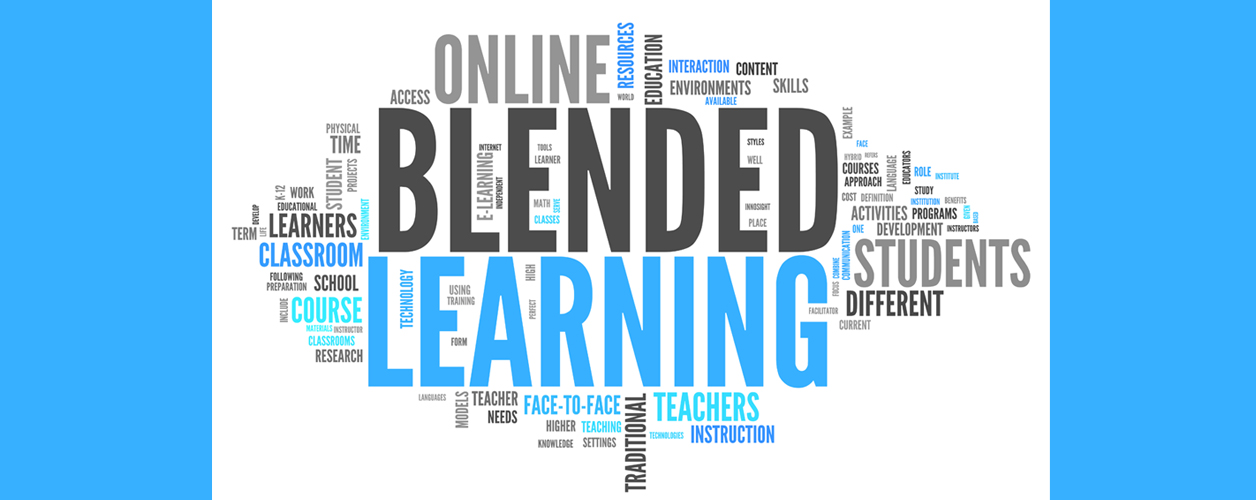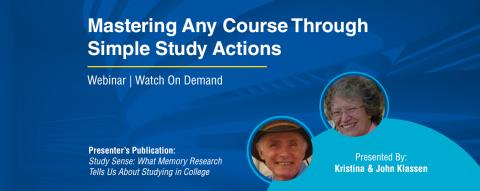
A Student’s Take on Hybrid Learning: The Good, the Bad, and the Foggy
Entering into the 2020-21 school year, I did not know what to expect; no one did. Before August 2020, the term "hybrid learning" was foreign to me. Nevertheless, I had high hopes for this learning format. Honestly, I couldn't wait to be back in the classroom (words I never thought I'd say).
“Hybrid learning” means something a little bit different to everyone; each institution had their own unique definition. My school allowed students to choose either fully-online or hybrid classes (in-person every other day depending on the class size). This meant every course was taught simultaneously to in-person students as well as students via online meeting software. For some classes, the online students were projected to the front of the classroom, other times everyone in-person were also online. Professors did what they could to help the class feel like a collective unit, yet like most new things, there was a bit of a learning curve that came with managing hybrid courses.
Hybrid Fog
I personally felt disorganized during the first month of classes – one of a few road bumps on the semester’s journey, Beginning a new school year and getting the feel for a new course schedule is always an adjustment, but this year the uneasiness was amplified. Although I pride myself as being an organized student, I was always worried I was missing a "hidden" assignment, or that an in-person day was switched to an online day and I had missed the memo. However, about mid-way through the semester, a few of my professors began sending weekly overview emails laying out the plan for the week in terms of assignments due, which days were in-person vs. online and what we would be covering in class that week. I found these emails particularly helpful in clearing the "hybrid fog."
I've found that organization is key in managing hybrid classes. It’s easy to lose track of important dates and projects when switching from in-person to online formats every other day. So another helpful habit some of my professors adopted was ensuring that everything was clearly labeled and updated on our class's online platform (my school uses E-Learn). Though organization seems like a no-brainer, quite a few times this last year I scrambled to submit an assignment because it had a different due date then what was mentioned in class or some professors required submissions via email so there was not due date on E-Learn. I personally found having assignments, readings, and Power Points laid out by the week was the easiest to navigate. In the classes where all of resources were easily accessible and organized, I rarely found myself scrambling to find recorded lectures or assignments.
In-person, Online and Everything In Between
While learning via the hybrid model, I discovered how precious time in the physical classroom is. I appreciated it when many of my professors opted for recorded lectures and saved the time in the classroom for discussion (aka human interaction) and questions. However, when it came to small group discussions, I found it difficult when the professor put both the in-person students and the zoom students into online break-out rooms. It was just awkward trying to talk to people online at the same times as everyone else, especially if you happened to forget headphones. In my experience, the most effective way to have small group discussions was by splitting the online students into online breakout rooms while the in-person students discussed amongst themselves.
Although I attended class in person about every other day, there were a few days a week where I stared at my video conference screen for about four consecutive hours. Basically, I've learned that online meeting fatigue is real. This is why I truly appreciated it when professors allowed the occasional "camera-off" class. I understand why many professors require proper online conference etiquette, but I'm not going to lie, sometimes it's nice to have a break from staring at yourself for hours on end.
One Final Reflection
Now as I enter into final exam season, I've realized that hybrid learning has taught me a lot about flexibility, resilience, and grace. I truly appreciate my professors who didn't try to act like they "had it all together" and were open to student feedback. Together we dove headfirst into hybrid learning, and while I hope to be the fully in -person next year, I’m thankful I could still get back on campus this year.
About the Author
Carter Lee is a Junior at Loras College majoring in Marketing and Public Relations.



